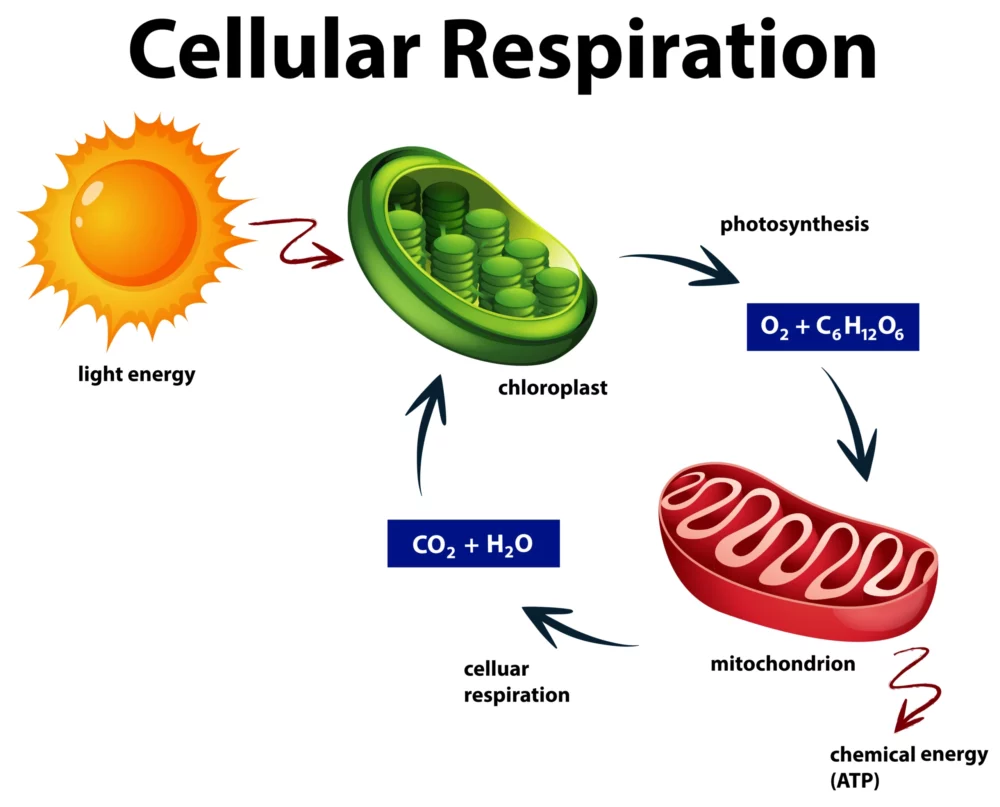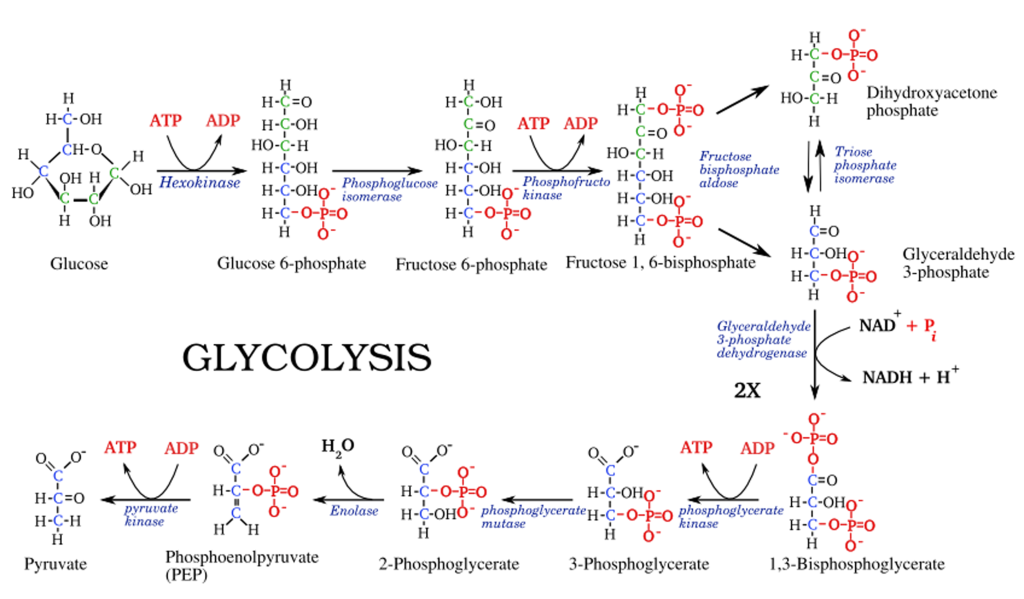Tag: glycolysis

Q&A on Glycolysis
1. What is glycolysis, and why is it important? Glycolysis is a metabolic pathway that breaks down glucose into energy-rich molecules. It’s crucial for energy production in cells. 2. Where does glycolysis occur in cells? Glycolysis takes place in the cytoplasm of cells. 3. How many ATP molecules are initially invested in glycolysis? Two ATP…

CELLULAR RESPIRATION
Cellular respiration is a fundamental biochemical process that occurs in all living cells, from the tiniest bacteria to the most complex multicellular organisms. It is the means by which cells convert organic molecules, primarily glucose, into adenosine triphosphate (ATP) – the universal currency of cellular energy. This intricate and highly regulated metabolic pathway is essential…

Glycolysis Pathway
Glycolysis is a crucial metabolic pathway found in all living cells, serving as the initial step in the breakdown of glucose to produce energy. This ancient and highly conserved process occurs in the cytoplasm and plays a central role in both aerobic and anaerobic respiration. In this note, we’ll delve into the details of glycolysis,…



